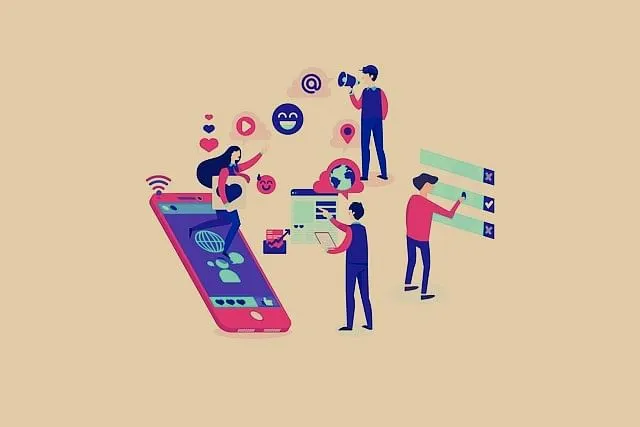“You shall know the truth, and the truth shall make you mad”, thus spake the English writer and philosopher Aldous Leonard Huxley. There may have been a context to this–may be an attempt to philosophise some form of a human predicament. But this immortal utterance, perhaps, can’t be more relevant for any historical phase other than our own present, burgeoning and digital-dystopic one.
Truth is encrypted and written all over the universe–across souls and bodies. It is closer to us than our own being. We live within it and breath in it. Yet it has remained elusive. And it is good that it is as it is.
Truth was never supposed to be a thunderbolt–striking with a bang. It was programmed to dawn gradually. The more a human developed his/her faculty, the more entitled he/she became, the more truth he/she got to embrace.
So why is it hazardous to immaturely “democratise” the truth? The question may sound counterintuitive, and even lunatic. But let me put my hand in alligator’s mouth. Too much of truth can unravel the fiction that sustains life. Mysteries, myths, assumptions and even ignorance sometimes keep us going. And unless we deserve to know something, it is better for us not to know it. To cite an example, if a husband could precisely read what was going on in the mind of his wife, and vice versa, hardly any marriage would sustain for long.
The discourse on truth has suddenly catapulted into a major ideational realm–thanks to the new digital paradigm we find ourselves in. This is undoubtedly a moment of deep structural disruption, where a dark night has descended upon us suddenly–even if momentarily. Rather than self-reckoning and trying to look for light, we have become that metaphorical circular firing squad, not having a slightest whiff of the impending collective fratricide. This is the “paradox of digital”. And what can demonstrate it more than the following.
Here is a story of two adorable kids. Princesses of their own worlds. One became a national sensation because of her innocent appeal to the Prime Minister, while the other lost her life in a horrendous tragedy. The former is a case of the bright side of what the “digital” bestows upon us. So far so good. Yet, I would, for now, like to focus on the latter.
It came as a shock for everyone that a 5 year old child was taken away by a leopard from her home in Ompora Housing Colony, and then her dead body was found the next morning. Commotion, lamentations, protests and argumentations followed. And then, when most of us would have expected a decent closure, the father of this ill-fated child came out with a heart-rending appeal. Some vultures in the garb of men had captured videos of the child’s mauled body and circulated it on social media. The images had gone viral. The father, with folded hands, was now requesting the people to delete those footages, as the family couldn’t bear coming across them recurrently.
What is fundamentally indefensible in what transpired is the same vulgarity with which the plebeians may handle too much of the truth. Actually this father was telling us “what” and “how much” truth we needed to know about his daughter. He could have asked us bluntly who the hell were we to decide how his angel like child would be remembered, and that who gave us the right to corrupt her memories for perpetuity. For when all filters are off, all curtains are torn apart, and when it’s just the truth that people are capturing and disseminating, the truth can really be stranger than fiction.
In the collectivist culture that we are a part of, privacy still has an archaic connotation. The consciousness towards need for reconfiguring and redefining our value system has been lulled by the sheer magnitude of transformation. We are not able to keep up the pace with the changes happening around us. Ours is a unique case of premodern modernity and modern premodernity. Therefore, agency without aptitude and power without responsibility have come to define our interaction with the digital. The fact that the disciplinary force which exists in the physical world is absent in the digital world, makes a man with a smartphone in his hands as dangerous as a chimpanzee with a loaded AK-47.
We love to weaponize data, and with it the truth becomes lethal as well. We are collectively marching towards establishing what Shoshana Zuboff calls “a world based on total certainty” and pungent truth, driven by a post-Darwinian drive for the survival of the fastest. All of us have become either content creators or content devourers. To figure out the motivational trigger behind it, we may have three groups of people. The smartest among us are guided by monetary motive and the dumbest among us by shock-n-awe. In-between lies a vast chunk to derive the vicarious pleasure out of the truth being dished out. All in all, a circus of sorts is on.
It seems that the “digital” has ultimately laid bare our hypocrisy. We have finally got a conduit to vent out our frustrations, our suppressed sensibilities. It feels cathartic–like breaking some taboo. The resulting excitement has metamorphosed us into an unruly mob which nowadays rules the world of social media. Here all of us suffer from the “transition syndrome”–where the old and the new truths are fighting it out, and we don’t know how to behave yet. It is a reenactment of the ancient man discovering fire, when he was not yet sure of its constructive and destructive potential. He cooked food, but also singed his fingers, and almost burned down the whole forest.






